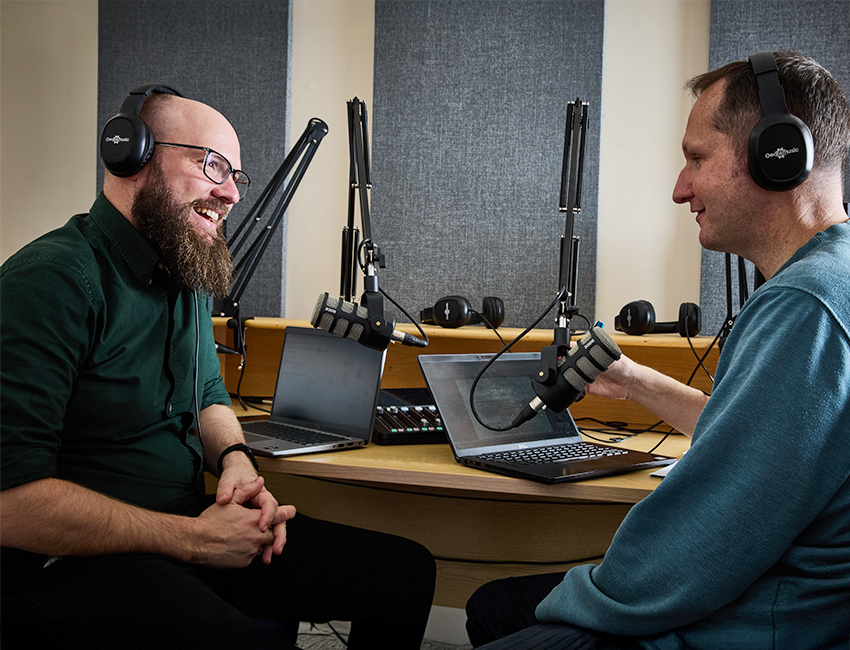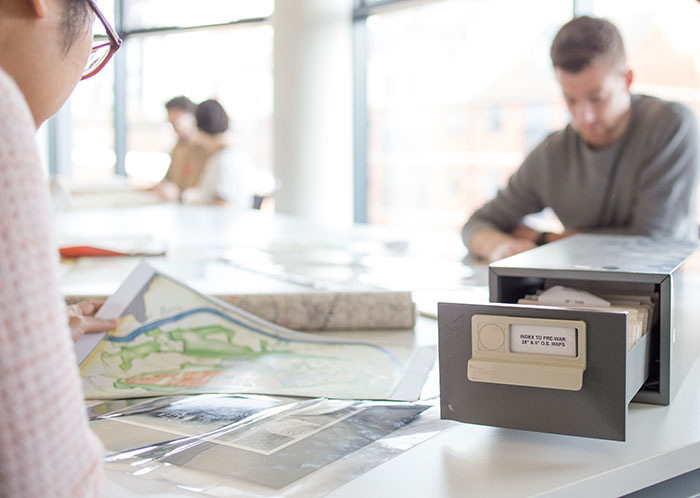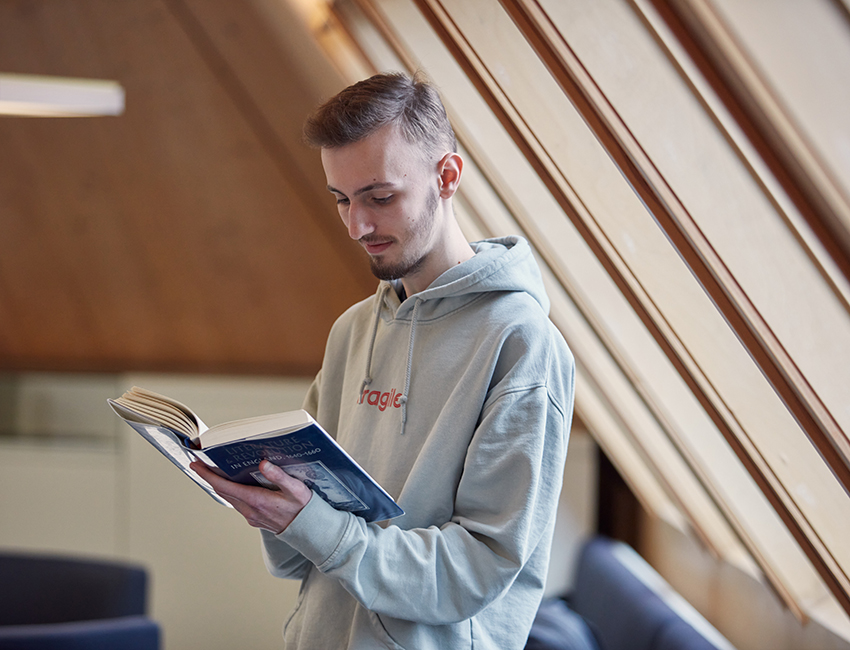Whether you’re passionate about storytelling, campaigning, or creating content that makes a difference, this course prepares you to step into the ever-evolving world of journalism.
of students go on to work and/or study
of students were positive about support from teaching staff
University of the Year finalist
Recognised for our graduate success, we’re shortlisted for University of the Year in the Times Higher Education Awards 2025.
Overview
Studying Journalism at Worcester allows you to explore different aspects of the profession and prepares you for a career in the specialism you choose. From writing and editing to recording and producing, you’ll gain hands-on experience in the University’s radio, podcast, and TV studios, using industry-standard equipment.
Most of your learning will take place in small group seminars, giving you plenty of opportunities to connect with your peers through collaborative projects. You’ll be taught by experienced professionals who’ve worked across news, magazines, broadcasting, PR, and digital media. They offer 1-1 tutorials alongside classroom sessions and will teach you how to spot, write, and pitch a story.
From your very first week, you’ll start building your network and continue doing so throughout your degree.
Your modules will cover everything from media law and ethics to search engine optimisation, and social media. You’ll also have the chance to specialise in areas that matter to you - whether that’s sport, music, fashion, investigative journalism, or campaigning journalism, where you might cover environmental issues or explore gender, identity, and inclusivity.
Work experience
During your time at Worcester, you’ll have the opportunity to gain valuable, subject-related work experience that enhances your learning and boosts your employability. In your third year, you will have dedicated work experience module, giving you the chance to apply your skills in a real-world setting.
You’ll also benefit from strong links with media organisations, including the BBC and regional PR agencies, where placements offer a first-hand look at life in the industry. These experiences are designed to help you build confidence, develop professional networks, and understand the fast-paced world of journalism.
Volunteering opportunities are regularly shared with students, allowing you to get involved with local media, community projects, and digital content creation, which will help you build a standout portfolio.
Graduate case study - Charlotte Broadbent
Course content
Each year you will study a mix of mandatory and optional modules. Our diverse curriculum, taught by industry experts, will allow you to explore the core skills of journalism before you choose your final project in Year Three.
We regularly review our courses to reflect the latest research and developments in the subject area, as well as feedback from students, employers and the wider sector. As a result, modules may change to ensure the course remains current and relevant. Optional modules will run if enough students choose to study them. It is not guaranteed that all modules will be offered every year.
Careers
The arts industry is growing, so our course has been created with your employability in mind, equipping you with the skills and confidence to be successful in wide range of careers. You’ll graduate with skills in content creation, writing, editing and communication skills, which are highly valued across many industries.
Our students have found employment in the following areas:
- Broadcast journalism
- Radio presenting and reporting
- Magazine and newspaper journalism
- Social media management
- Public relations and communications
- Sports journalism
- Marketing
- Teaching
Opportunities to progress
Many of our graduates choose to continue their studies with a postgraduate qualification. Popular options include:
You’ll also benefit from a strong focus on employability throughout the course, developing transferable skills in team-working, research and time management, which you will use in a variety of roles. You'll also the chance to gain real-world experience through our work project module.
Case studies
Hear from our recent graduates about how the Journalism degree at Worcester helped shape their careers and prepare them for the future.
Course highlights
Teaching and assessment
Teaching is a mix of interactive seminars, lectures, and one-to-one tutorials. Our modules give you the chance to develop your skills as a journalist through practical sessions and personal guidance.
Teaching and assessment contents
You are taught through a combination of:
- Lectures; seminars; demonstrations; workshops; work simulations (newsdays); tutorials, group and individual project work; supervised independent learning; open and resource-based learning; e-learning; production practice and work experience and placements.
- Teaching involves large and small group sessions, the latter especially for workshop activities related to the acquisition of production skills.
- Sessions are a mix of tutor-led, student-led and independent learning.
- You will investigate critically and analyse theoretical and conceptual issues central to journalism studies and be able to synthesis and evaluate material. Acquire skills to'originate and develop ideas for editorial content across a range of platforms. Investigate the development of journalism with regard to political, social, economic, legal, ethical and technological considerations.
In addition, meetings with personal academic tutors are scheduled on at least 4 occasions in the first year and three occasions in each of the other years of a course, including during an induction session at the start of each academic year.
You have an opportunity to undertake work placements in both your second and third years of the course, as part of mandatory modules on the course.
You use industry-standard equipment and software for all pathways and have access to state-of-the-art TV and radio studios throughout the course.
Meet the team
A small selection of the journalist lecturers who teach on this course.
Entry requirements
UCAS tariff points required: 104
| Qualification | Grade |
|---|---|
| A-level | BCC |
| BTEC National Extended Diploma | DMM |
| T-level | Merit |
We do accept Access to HE Diplomas and other qualifications which may not exactly match the combinations above. Work out your estimated points with the UCAS tariff calculator.
Any questions?
If you have any questions about entry requirements, please call our Admissions Office on 01905 855111 or email admissions@worc.ac.uk.
Fees
Fees contents
UK and EU students
In 2026/27 the standard fee for full-time home and EU undergraduate students on BA/BSc/LLB degrees and FdA/FdSc degrees is £9,535 per year (subject to changes in the government tuition fee cap).
Tuition fees are reviewed annually and may increase each year for both new and continuing students.
For more details on course fees, please visit our course fees page.
International students
In 2026/27 the standard tuition fee for full-time international students enrolling on BA/BSc/LLB degrees and FdA/FdSc degrees is £17,200 per year.
Tuition fees are reviewed annually and may increase each year for both new and continuing students.
For more details on course fees, please visit our course fees page.
How to apply
How to apply contents
Applying through UCAS
UCAS is the central organisation through which applications are processed for full-time undergraduate courses in the UK.
Read our how to apply pages for more information on the application process, or if you’d like to apply for part-time study.
Journalism BA (Hons) - P500
As well as a single honours degree, Journalism is also available as part of a number of joint honours combinations:
English Language and Journalism BA (Hons)
English Literature and Journalism BA (Hons)
History and Journalism BA (Hons)
Contact
If you have any questions, please get in touch. We're here to help you every step of the way.
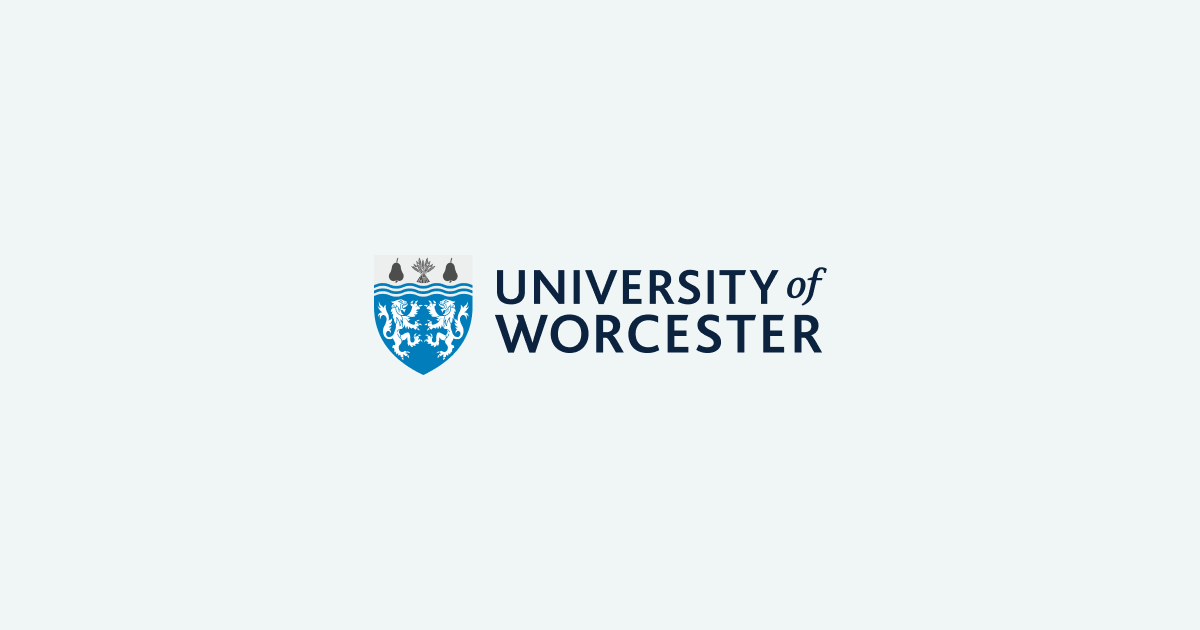
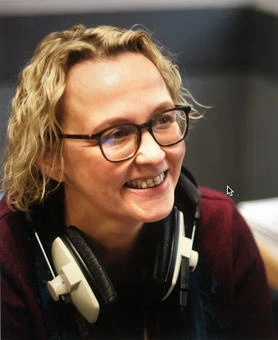
Admissions Office
admissions@worc.ac.uk01905 855111More to explore
Open Days
Visiting us is the best way to get a feel for student life at the University of Worcester.

The City of Worcester
Worcester is a welcoming university city with great transport links and plenty of student parking.

Accommodation
Benefit from our accommodation guarantee. We have rooms on campus to suit every budget including en-suite options.

